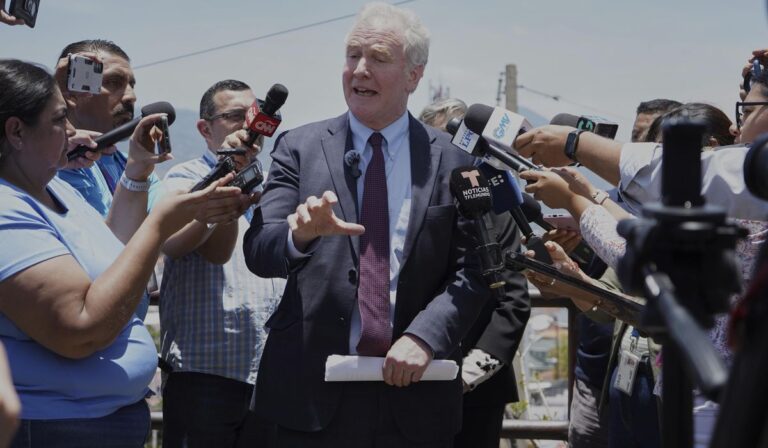San Salvador, El Salvador — In a powerful show of support and accountability, a U.S. senator traveled to El Salvador this week to meet with Kilmar Abrego Garcia, a legal U.S. resident who was mistakenly deported by immigration authorities last year.
Abrego Garcia, a Panamanian national and longtime U.S. resident with legal status, was deported in 2023 under what advocates are calling a serious misstep by U.S. Immigration and Customs Enforcement (ICE). His case has sparked renewed attention to flaws in the country’s immigration enforcement system.
During their meeting in San Salvador, the senator—whose name has not yet been disclosed due to privacy and security concerns—listened to Garcia’s account of how a routine traffic stop in Florida led to months of detention and ultimately, deportation to a country where he had never lived.
“It was like everything I built in the United States disappeared overnight,” said Garcia during a press briefing after the meeting. “I’ve lived most of my life in the U.S. My family, my home, my job—it’s all there.”
According to legal documents and statements from immigrant rights groups, Garcia’s deportation stemmed from bureaucratic errors and a failure to recognize his valid residency status. His lawyers say they repeatedly provided evidence of his legal presence, but ICE allegedly failed to properly process or verify the documentation.
The senator’s visit marks a rare move by a high-ranking official to personally engage with an individual caught in such a situation abroad. It’s being seen as a potential shift toward greater oversight of immigration enforcement practices.
“This visit is about more than one man,” the senator said in a statement. “It’s about accountability. No one with legal status in the United States should be deported because of systemic failures or indifference. We need to get this right.”
Garcia’s case is currently under review, and advocacy groups are calling for his immediate return to the United States and an investigation into the circumstances that led to his removal. Meanwhile, he remains stranded in El Salvador, relying on temporary accommodations provided by local nonprofits and supporters.
Legal experts note that Garcia’s experience may not be isolated. “This is part of a larger pattern,” said Mariela Torres, an immigration attorney based in Washington, D.C. “We’ve seen multiple cases where individuals with legal status have been swept up in deportations due to administrative oversights or rushed proceedings.”
Back in the U.S., Garcia’s family continues to advocate for his return, urging elected officials to act swiftly. His children, who are U.S. citizens, have sent letters to members of Congress and launched a petition that has gained thousands of signatures.
The senator has pledged to push for legislative reforms and increased transparency within ICE operations. “We cannot allow American policy to turn its back on law-abiding residents,” the senator said. “This is a moment to right a wrong—not just for Mr. Garcia, but for everyone who could face the same fate.”
For now, Kilmar Abrego Garcia waits in El Salvador, hopeful that the renewed attention to his story will bring him back home—and that no one else will have to endure what he has.
